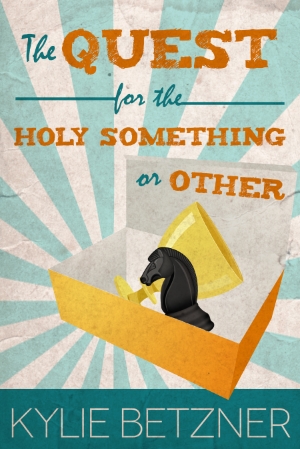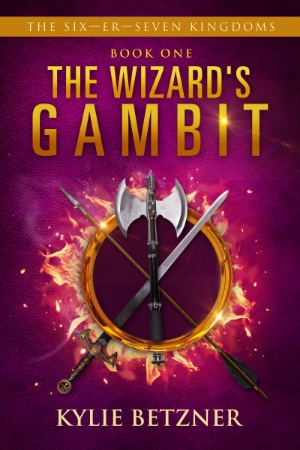In the previous post in this series, I talked about perspective, voice, and unexpected turns. This time, I’ll be focusing on themes, specifically how carefully tying each element in your story to your desired theme will strengthen the piece as a whole and bring unity to its core idea.
What is a theme?
A theme is the central idea or topic found overall in a piece of writing. It is what drives the surrounding content and weaves each subtopic into a uniform structure. In most stories, themes are depicted by the events that unfold rather than a direct statement from the narrator. Culture can also play into the theme, often by introducing viewpoints or circumstantial behavior that one might find in a close group of people or a community.
Finding Your Theme
A theme is not just a minor topic presented in the book. It usually manifests as a way of thinking or an attitude toward that topic, making some revelation in the process. For example, one theme we see in the Harry Potter series (a fantastic supernatural series) is this: choice and free will. Even those “fated” to a certain path can change their course because of the will we are given, and our actions have consequences.
Theme is often expressed through what characters or the reader learns throughout the story. In Rowling’s series, Harry and his friends learn more about the past and what is about to unfold. New themes are introduced, and the theme about choice remains. Harry must decide with each new piece of the puzzle what actions he will take and what effect that will have on those around him.
Most themes are difficult to state using a single line. They’re often paraphrased, showing expressing the idea by means of relating it to something we know. Idioms, such as “calling the kettle black” or “letting the cat out of the bag” are a great examples of this. There are many ways to express idioms, and in fact, most every culture has their own take on it. For example the American idiom, “A bird in the hand is worth two in the bush,” is expressed in German as, “Lieber ein Spatz in der Hand als eine Taube auf dem Dach,” which literally translates to, “A sparrow in the hand is better than the pigeon on the roof.” Similar concept, but much different wording. And just as there is more than one way to get the point of an idiom across, so is there for themes.
Theme are not always morals, nor are they always meant to teach us how to behave, though that is sometimes the case. Rather, themes are a viewpoint, a way of illustrating a particular stance on a topic. Some of the more complex and, in my opinion, interesting pieces of literature will often have more than one theme. One of my favorite examples of this is Charles Dickens’s A Christmas Carol, where he focuses on themes around the threat of time and the long-term consequences of our actions, family, social class, and tradition—all while weaving in supernatural elements to boot!
However, the thing to consider when tying in different themes to your story is to ensure that you only have one main theme. Otherwise, it might get lost in the shuffle.
Here is a list I found of common themes often found in literature that you might find helpful when getting started: http://homeworktips.about.com/od/writingabookreport/a/themelist.htm
Adding Dimension to a Theme
A theme often ties into the genre of the story, but it goes deeper than that. This is where the layering technique comes in. Your characters actions’ as well as the outcomes to those actions will normally feed into your chosen theme, thus “proving” it to readers. The various elements of the story should also tie-in, to paint a clear picture of the theme without ever stating it directly. For those of you who are familiar with the old “show, don’t tell” advice, it comes into play here as well.
Now, I know what some of you might be thinking, and I’ve been waiting for this argument. Do you really have to bother with a theme? Why get hung up on the literary concepts when you can just write?
The truth of the matter is, you’re probably crafting a theme without even knowing it when you’re writing. Initial ideas are usually silhouettes of a much larger and complete theme, and often times, it’s just hard to pinpoint that theme until the story is complete. I’ll admit that this was actually true for me when I first started writing The Porcleain Souls series. It took me a while to uncover each theme, and I discovered more with each scene. But if you find yourself struggling with which direction to take your story and the desired outcome you want to have, a good place to start really is by examining the theme—even if it’s only the one your story is leaning toward so far.
Themes Don’t Define an Author
There’s one last point I want to mention, because it’s one that is easy to forget when we’re lost in a good book. Authors don’t always support or agree with the themes they’ve created, and they don’t have to. The purpose of crafting a work of fiction is to tell a story. Sometimes that story will align with our own beliefs and experiences, and other times is won’t. And that’s okay. You should never have to feel guilty about what you’re writing, just because it might offend someone. Have you seen the list of banned books? I, for one, and am glad that many of the books that have made a banned list at one point or another were written. They’re some of the best books out there, because the authors of them weren’t afraid to tell the story that they wanted to write. They didn’t care who judged them or deemed their work unfit for public consumption. They wrote it anyway, and it paid off, because all the hype about the books being banned have actually spawned their popularity.
So while knowing your theme and catering to that is important, don’t forget to just breathe, relax, and write. Tell your story, because no one else can tell it for you.




